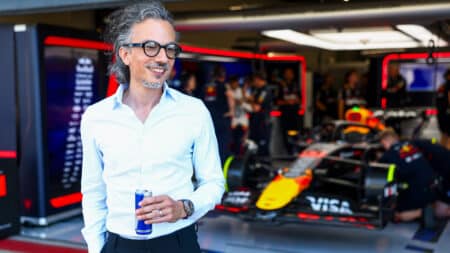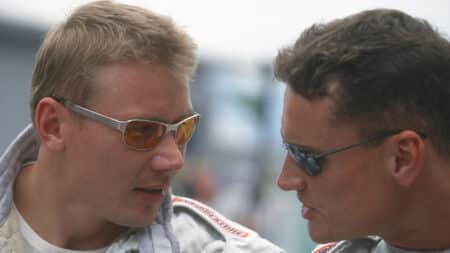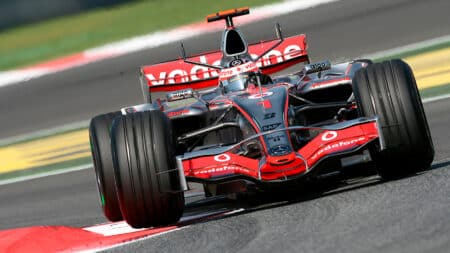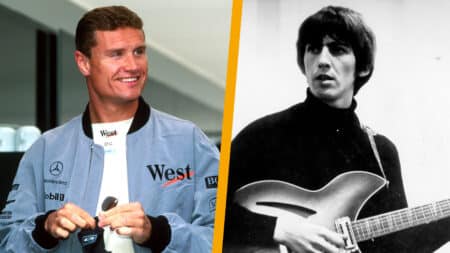
MPH: To the man trying to fill Christian Horner's shoes: good luck!
Laurent Mekies arrives as Red Bull F1 team principal with a series of immediate challenges to solve and long-term issues to tackle. He'll either sink or swim, says Mark Hughes
There’s no such thing as a free lunch. Really? Like many correspondents I have, over the decades, enjoyed a fair few free lunches. Only last month I dined at Williams in Grove, the food prepared by two-star Michelin chef Michael Caines. Very Formula 1. There, now you know, this is the world in which I am privileged to live.
The word ‘free’ is, however, easily misunderstood. As you will know to your cost if you’ve been seduced by those dishonest bits of junk that come through the letter box.
Why am I going through this preamble? Because I am concerned about both KERS (kinetic energy recovery system) and DRS (downforce reduction system) in Grand Prix racing. These two devices, or systems, are seen by many as some kind of key to a puzzle – the magical answer to a lack of overtaking. But they are not and never have been the gift of free power, or the gift of a free passing manoeuvre.

Firstly, we cannot possibly judge the effectiveness, or otherwise, of these devices from what we saw in Melbourne. Nor will we be able to make a sensible judgement after Sepang. It will be mid-season before we can talk about how wonderful they are – or how they should be immediately banned. Or, more likely, how they have suddenly disappeared from the headlines.
KERS is painfully expensive. And DRS is horribly complicated, fraught with software glitches and electronic bugs that, for example, would not let Williams open the gap in the rear wings for some laps in Albert Park. Remember, the FIA is in charge of when they may be used, and Charlie Whiting makes the call, not the man in the cockpit. There are going to be toys hurled from prams before too long…

The expense of KERS is universally unpopular, up and down the pitlane, whether you’re Red Bull or Virgin. Some have designed and built their own systems rather than buy one in ready-made. This saves money but, for many teams, has disrupted pre-season testing and therefore reliability. So much time was spent on making KERS work that other areas like durability, efficiency and outright performance were compromised.
Red Bull didn’t use KERS at Albert Park, at least not in any meaningful way. That team, too, has had problems with the device and only got away without using it because the rest of the car is so incredibly good. The installation of this system is not only complex but also involves just about the whole of the rest of the design – because the weight has to be accounted for, and space made for battery packs. And, as we know, weight distribution is God.

Don’t be too surprised if, mid-season, KERS is the subject of robust debate. The teams don’t like it, the costs are hideous and the benefit remains open to question. As for DRS, we wait to see how it works on a circuit with a very long straight and a sharp corner at the end – like Malaysia. But the truth is that neither of these devices will solve the problem of overtaking. Only major changes to the rules governing aerodynamics – and a return to circuits designed for actual racing – will achieve an increase in overtaking.
I am simply concerned that Grand Prix racing has gone one step further into a technological labyrinth, and it should back out again before it gets completely mired in gizmos and post-race arguments. The vast majority of spectators are not bothered about when the KERS battery is charging, or when the rear wing is open or closed. They are there, and in their millions in front of the TV, to be entertained by Grand Prix racing that is worthy of its name, that justifies it being the pinnacle of motor racing.

Laurent Mekies arrives as Red Bull F1 team principal with a series of immediate challenges to solve and long-term issues to tackle. He'll either sink or swim, says Mark Hughes

Former McLaren F1 team-mates Mika Häkkinen and David Coulthard are set to renew old rivalries in a new Evening with... tour – they told James Elson all about it

In Formula 1, driver contracts may look iron-clad on paper, but history shows that some of its biggest stars have made dramatic early exits

Former McLaren F1 ace told James Elson about his private audience with The Beatles' George Harrison, who played an unreleased grand prix-themed song